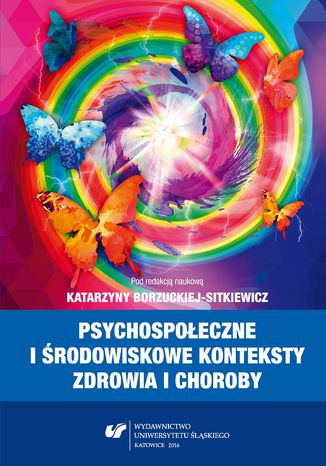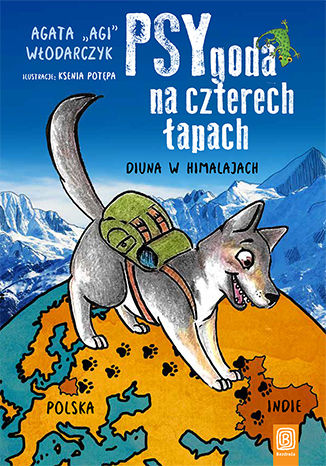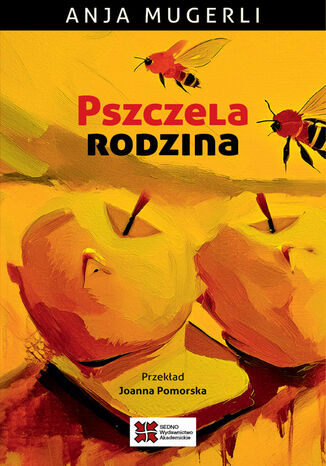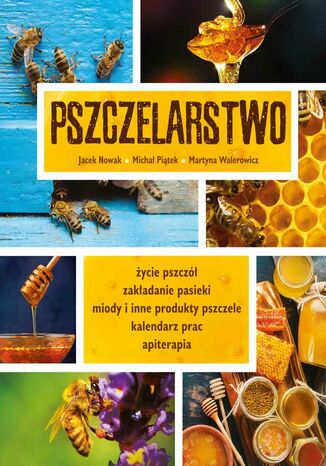Категорії
Електронні книги
-
Бізнес та економіка
- Біткойн
- Ділова жінка
- Коучинг
- Контроль
- Електронний бізнес
- Економіка
- Фінанси
- Фондова біржа та інвестиції
- Особисті компетенції
- Комп'ютер в офісі
- Комунікація та переговори
- Малий бізнес
- Маркетинг
- Мотивація
- Мультимедійне навчання
- Нерухомість
- Переконання та НЛП
- Податки
- Соціальна політика
- Порадники
- Презентації
- Лідерство
- Зв'язки з громадськістю
- Звіти, аналізи
- Секрет
- Соціальні засоби комунікації
- Продаж
- Стартап
- Ваша кар'єра
- Управління
- Управління проектами
- Людські ресурси (HR)
-
Для дітей
-
Для молоді
-
Освіта
-
Енциклопедії, словники
-
Електронна преса
- Architektura i wnętrza
- Безпека життєдіяльності
- Biznes i Ekonomia
- Будинок та сад
- Електронний бізнес
- Ekonomia i finanse
- Езотерика
- Фінанси
- Особисті фінанси
- Бізнес
- Фотографія
- Інформатика
- Відділ кадрів та оплата праці
- Для жінок
- Комп'ютери, Excel
- Бухгалтерія
- Культура та література
- Наукові та академічні
- Охорона навколишнього середовища
- Впливові
- Освіта
- Податки
- Подорожі
- Психологія
- Релігія
- Сільське господарство
- Ринок книг і преси
- Транспорт та спедиція
- Здоров'я та краса
-
Історія
-
Інформатика
- Офісні застосунки
- Бази даних
- Біоінформатика
- Бізнес ІТ
- CAD/CAM
- Digital Lifestyle
- DTP
- Електроніка
- Цифрова фотографія
- Комп'ютерна графіка
- Ігри
- Хакування
- Hardware
- IT w ekonomii
- Наукові пакети
- Шкільні підручники
- Основи комп'ютера
- Програмування
- Мобільне програмування
- Інтернет-сервери
- Комп'ютерні мережі
- Стартап
- Операційні системи
- Штучний інтелект
- Технологія для дітей
- Вебмайстерність
-
Інше
-
Іноземні мови
-
Культура та мистецтво
-
Шкільні читанки
-
Література
- Антології
- Балада
- Біографії та автобіографії
- Для дорослих
- Драми
- Журнали, щоденники, листи
- Епос, епопея
- Нарис
- Наукова фантастика та фантастика
- Фельєтони
- Художня література
- Гумор, сатира
- Інше
- Класичний
- Кримінальний роман
- Нехудожня література
- Художня література
- Mity i legendy
- Лауреати Нобелівської премії
- Новели
- Побутовий роман
- Okultyzm i magia
- Оповідання
- Спогади
- Подорожі
- Оповідна поезія
- Поезія
- Політика
- Науково-популярна
- Роман
- Історичний роман
- Проза
- Пригодницька
- Журналістика
- Роман-репортаж
- Romans i literatura obyczajowa
- Сенсація
- Трилер, жах
- Інтерв'ю та спогади
-
Природничі науки
-
Соціальні науки
-
Шкільні підручники
-
Науково-популярна та академічна
- Археологія
- Bibliotekoznawstwo
- Кінознавство / Теорія кіно
- Філологія
- Польська філологія
- Філософія
- Finanse i bankowość
- Географія
- Економіка
- Торгівля. Світова економіка
- Історія та археологія
- Історія мистецтва і архітектури
- Культурологія
- Мовознавство
- літературні студії
- Логістика
- Математика
- Ліки
- Гуманітарні науки
- Педагогіка
- Навчальні засоби
- Науково-популярна
- Інше
- Психологія
- Соціологія
- Театральні студії
- Богослов’я
- Економічні теорії та науки
- Transport i spedycja
- Фізичне виховання
- Zarządzanie i marketing
-
Порадники
-
Ігрові посібники
-
Професійні та спеціальні порадники
-
Юридична
- Безпека життєдіяльності
- Історія
- Дорожній кодекс. Водійські права
- Юридичні науки
- Охорона здоров'я
- Загальне, компендіум
- Академічні підручники
- Інше
- Закон про будівництво і житло
- Цивільне право
- Фінансове право
- Господарське право
- Господарське та комерційне право
- Кримінальний закон
- Кримінальне право. Кримінальні злочини. Кримінологія
- Міжнародне право
- Міжнародне та іноземне право
- Закон про охорону здоров'я
- Закон про освіту
- Податкове право
- Трудове право та законодавство про соціальне забезпечення
- Громадське, конституційне та адміністративне право
- Кодекс про шлюб і сім'ю
- Аграрне право
- Соціальне право, трудове право
- Законодавство Євросоюзу
- Промисловість
- Сільське господарство та захист навколишнього середовища
- Словники та енциклопедії
- Державні закупівлі
- Управління
-
Путівники та подорожі
- Африка
- Альбоми
- Південна Америка
- Центральна та Північна Америка
- Австралія, Нова Зеландія, Океанія
- Австрія
- Азії
- Балкани
- Близький Схід
- Болгарія
- Китай
- Хорватія
- Чеська Республіка
- Данія
- Єгипет
- Естонія
- Європа
- Франція
- Гори
- Греція
- Іспанія
- Нідерланди
- Ісландія
- Литва
- Латвія
- Mapy, Plany miast, Atlasy
- Мініпутівники
- Німеччина
- Норвегія
- Активні подорожі
- Польща
- Португалія
- Інше
- Przewodniki po hotelach i restauracjach
- Росія
- Румунія
- Словаччина
- Словенія
- Швейцарія
- Швеція
- Світ
- Туреччина
- Україна
- Угорщина
- Велика Британія
- Італія
-
Психологія
- Філософія життя
- Kompetencje psychospołeczne
- Міжособистісне спілкування
- Mindfulness
- Загальне
- Переконання та НЛП
- Академічна психологія
- Психологія душі та розуму
- Психологія праці
- Relacje i związki
- Батьківство та дитяча психологія
- Вирішення проблем
- Інтелектуальний розвиток
- Секрет
- Сексуальність
- Спокушання
- Зовнішній вигляд та імідж
- Філософія життя
-
Релігія
-
Спорт, фітнес, дієти
-
Техніка і механіка
Аудіокниги
-
Бізнес та економіка
- Біткойн
- Ділова жінка
- Коучинг
- Контроль
- Електронний бізнес
- Економіка
- Фінанси
- Фондова біржа та інвестиції
- Особисті компетенції
- Комунікація та переговори
- Малий бізнес
- Маркетинг
- Мотивація
- Нерухомість
- Переконання та НЛП
- Податки
- Соціальна політика
- Порадники
- Презентації
- Лідерство
- Зв'язки з громадськістю
- Секрет
- Соціальні засоби комунікації
- Продаж
- Стартап
- Ваша кар'єра
- Управління
- Управління проектами
- Людські ресурси (HR)
-
Для дітей
-
Для молоді
-
Освіта
-
Енциклопедії, словники
-
Електронна преса
-
Історія
-
Інформатика
-
Інше
-
Іноземні мови
-
Культура та мистецтво
-
Шкільні читанки
-
Література
- Антології
- Балада
- Біографії та автобіографії
- Для дорослих
- Драми
- Журнали, щоденники, листи
- Епос, епопея
- Нарис
- Наукова фантастика та фантастика
- Фельєтони
- Художня література
- Гумор, сатира
- Інше
- Класичний
- Кримінальний роман
- Нехудожня література
- Художня література
- Mity i legendy
- Лауреати Нобелівської премії
- Новели
- Побутовий роман
- Okultyzm i magia
- Оповідання
- Спогади
- Подорожі
- Поезія
- Політика
- Науково-популярна
- Роман
- Історичний роман
- Проза
- Пригодницька
- Журналістика
- Роман-репортаж
- Romans i literatura obyczajowa
- Сенсація
- Трилер, жах
- Інтерв'ю та спогади
-
Природничі науки
-
Соціальні науки
-
Науково-популярна та академічна
-
Порадники
-
Професійні та спеціальні порадники
-
Юридична
-
Путівники та подорожі
-
Психологія
- Філософія життя
- Міжособистісне спілкування
- Mindfulness
- Загальне
- Переконання та НЛП
- Академічна психологія
- Психологія душі та розуму
- Психологія праці
- Relacje i związki
- Батьківство та дитяча психологія
- Вирішення проблем
- Інтелектуальний розвиток
- Секрет
- Сексуальність
- Спокушання
- Зовнішній вигляд та імідж
- Філософія життя
-
Релігія
-
Спорт, фітнес, дієти
-
Техніка і механіка
Відеокурси
-
Бази даних
-
Big Data
-
Biznes, ekonomia i marketing
-
Кібербезпека
-
Data Science
-
DevOps
-
Для дітей
-
Електроніка
-
Графіка / Відео / CAX
-
Ігри
-
Microsoft Office
-
Інструменти розробки
-
Програмування
-
Особистісний розвиток
-
Комп'ютерні мережі
-
Операційні системи
-
Тестування програмного забезпечення
-
Мобільні пристрої
-
UX/UI
-
Веброзробка, Web development
-
Управління
Подкасти
Psychoprofilaktyka w świecie zagubionych wartości
Monografia koncentruje się wokół zagadnień istotnych dla wychowania i profilaktyki zachowań ryzykownych pod względem teoretycznym i praktycznym. Omawia rolę wartości w procesie dojrzewania osobowego oraz rolę nauczyciela w wychowaniu do wartości, aksjologiczny wymiar programów profilaktycznych, preferowane wartości wychowanków opieki zastępczej w Polsce, obowiązki etyczne społeczeństwa wobec dzieci z rodzin z problemem alkoholowym czy opinię współczesnej młodzieży na temat rodziny. Jest to ujęcie interdyscyplinarne, głównie psychologiczne, pedagogiczne i socjologiczne, zawierające wiele interesujących rozwiązań metodycznych, m.in. próbę konstrukcji narzędzia do pomiaru „pozytywnego rozwoju młodzieży”, profilaktykę wobec dzieci wysoko wrażliwych czy młodzieży używającej substancji psychoaktywnych. Publikacja omawia profilaktykę w kontekście psychologii sportu, a także w wsparcie społeczne jako profilaktykę niekorzystnych następstw starzenia się i starości
Psychoseksuologia. Metody diagnostyczne i terapeutyczne
Książka pod redakcją profesora Zbigniewa Lew-Starowicza to pierwsza publikacja na polskim rynku wydawniczym, w której tak kompleksowo omówiono zagadnienia z zakresu psychoseksuologii. Autorzy uznani eksperci w swojej dziedzinie prezentują aktualne koncepcje diagnostyczne i terapeutyczne oraz ich zastosowanie w praktyce klinicznej, powołując się na wyniki najnowszych badań naukowych. W części pierwszej czytelnik znajdzie omówienie zastosowania klasyfikacji ICD-11w diagnostyce problemów zdrowotnych związanych z seksualnością. Zapozna się także z zagadnieniami dotyczącymi diagnozowania, opiniowania i leczenia sprawców przestępstw seksualnych w świetle zasad etyki zawodu seksuologa. Część druga jest poświęcona metodom diagnostycznym wykorzystywanym w terapii problemów seksualnych. Zawiera informacje na temat: wywiadu seksuologicznego, narzędzi służących do oceny cyklu reakcji seksualnych, skal i kwestionariuszy przydatnych w pracy terapeutycznej, metod oceny czynników ryzyka i skuteczności leczenia w seksuologii sądowej oraz zalet i kontrowersji związanych ze stosowaniem testów projekcyjnych. W ostatniej części książki omówione zostały różne aspekty diagnozy i terapii psychoseksuologicznej. Czytelnik znajdzie tu przegląd substancji psychoaktywnych wraz z konsekwencjami ich zażycia dla funkcjonowania psychoseksualnego, a także opis metod leczenia zaburzeń seksualnych, w tym wskazań i przeciwskazań do terapii, postępowania w przypadku konkretnych problemów oraz najczęściej spotykanych błędów w diagnostyce i leczeniu. Osobne rozdziały poświęcono psychopatii, zaburzeniu kompulsywnych zachowań seksualnych, pedofilii, duchownym w roli sprawców, przemocy seksualnej w postaci gwałtu oraz pracy klinicznej z osobami LGB. Książka stanowi nieocenione źródło wiedzy dla psychologów rozpoczynających studia specjalizacyjne w zakresie psychoseksuologii i będących w trakcie specjalizacji.
Psychosocjologiczne aspekty działania organizacji
Niniejsza publikacja jest złożeniem tekstów powiązanych z wybranymi tematami z zajęć z Psychologii i socjologii prowadzonych przez autora na Wydziale Zarządzania Politechniki Warszawskiej. Oprócz zwięzłych wprowadzeń teoretycznych można tu znaleźć zadania i pytania pomocne w aktywizacji studentów i wzbudzeniu refleksji, inspirujące do dalszych poszukiwań - zostały one wyodrębnione w cieniowanych na żółto ramkach. Zebrane tu treści stanowią pomoc dydaktyczną dla wykładowców i studentów i nie aspirują w żadnym razie do wyczerpania poruszanej tematyki. Mogą dawać co najwyżej wstępny zarys zagadnień, do których zgłębienia niezbędne jest zapoznanie się z odnośną literaturą, najlepiej przy wsparciu dydaktyka.
Psychospołeczne aspekty zarządzania zasobami ludzkimi
Anna Bazan-Bulanda, Agnieszka Kwiatek, Maja Skiba (red.)
Podręcznik zawiera treści dotyczące psychospołecznych aspektów zarządzania zasobami ludzkimi i może stanowić źródło cennej wiedzy dla współczesnego czytelnika. Skierowany jest w głównej mierze do studentów kierunków związanych z dyscypliną nauk o zarządzaniu, ale ze względu na syntetyczne ujęcie podejmowanych problemów może być również przydatny dla studentów innych kierunków oraz praktyków. Opracowanie składa się z dwunastu rozdziałów. Na końcu znajduje się spis literatury oraz słownik najważniejszych pojęć. W książce omówiono: podstawowe pojęcia takie jak: „praca”, „jakość pracy”, „jakość życia” oraz „zasoby ludzkie”; zależności pomiędzy jakością pracy a jakością życia w świetle funkcjonowania zasobów ludzkich; aspekty związane ze zróżnicowaniem kulturowym rynku przekładające się na problemy w zarządzaniu przedsiębiorstwem; koncepcje i metody oceniania pracowników; istotę, cele oraz korzyści wynikające z zarządzania różnorodnością pracowników w organizacji; rolę zarządzania talentami w zarządzaniu organizacją; pojęcie „pracoholizmu” oraz konsekwencje tego uzależnienia; problematykę promowania „miękkiego” podejścia do ZZL oraz zagadnienie przywództwa w środowisku wirtualnym; istotne procesy zatrudniania pracowników, które dostosowują się do zmian społeczno-ekonomiczno-technologicznych; efektywne komunikowanie się w organizacji, w tym związane z przestrzenią wirtualną; „Ideę Porozumienia Bez Przemocy”; negocjacje w organizacji; kreowanie własnego wizerunku menadżera.
Publikacja stanowi wieloaspektowe opracowanie z zakresu psychologii pracy oraz psychologii organizacji i zarządzania, dotyczące problematyki różnorodności pokoleniowej. Autorka omówiła podjęte zagadnienia z uwzględnieniem wymiaru indywidualnego i organizacyjnego, a także ukazała je z dwóch perspektyw - teoretycznej (zamieszczając definicje kluczowych terminów i charakterystykę istotnych zjawisk) i empirycznej (prezentując założenia i rezultaty projektu badawczego, zrealizowanego w obszarze różnic pokoleniowych). Książka jest adresowana do osób zainteresowanych tematyką współczesnego rynku pracy, naukami związanymi z organizacją i zarządzaniem oraz psychologią pracy. "Badaczka wykazała, że dobrze realizowana polityka wiekowa w organizacjach sprzyja satysfakcji z pracy i życia, co jest uznanym czynnikiem kształtującym dobrostan jednostek. Monografia wpisuje się w nurt badań aplikacyjnych, których nadrzędnym celem jest wypracowanie interwencji i polityk łagodzących konsekwencje kryzysu demograficznego w społeczeństwach rozwiniętych. [...] Przedmiot podjętych badań jest ważny, a postawione w pracy tezy - oryginalne. Nie przypominam sobie funkcjonującej na rynku wydawniczym publikacji, która analizowałaby w sposób tak wnikliwy i wielowymiarowy rolę różnic międzypokoleniowych w kształtowaniu indywidualnych doświadczeń zawodowych i percepcji różnych aspektów środowiska pracy." Z recenzji prof. dr hab. Doroty Merecz-Kot (Instytut Medycyny Pracy)
Psychospołeczne bariery zaspokajania potrzeb pracowników. Diagnozowanie sytuacji pracy
Między pracownikami a pracodawcami istnieje układ oparty na wymianie. Pracodawca potrzebuje pracy ludzkiej do realizacji swoich przedsięwzięć. Pracownik oczekuje w zamian rekompensaty, nie tylko w postaci zapłaty. Układ ten byłby idealny, gdyby oczekiwania obu stron mogły być w pełni zaspokajane. W rzeczywistości trudno o zrównoważenie aspiracji obu stron. Pracodawcy chcą, aby pracownicy pracowali więcej i chętniej. Ci drudzy wysuwają zastrzeżenia, co do poziomu zaspokojenia ich potrzeb. Każdy chce osiągnąć jak najwięcej, ale przewaga sił leży po stronie dających zatrudnienie. To oni dyktują warunki, od których zależy zadowolenie ludzi świadczących pracę. Podejmując próbę rozwiązania tego problemu, najlepiej zatem dążyć do konsensusu, czyli usuwać powody niedogodności odczuwanych przez pracowników tak, aby mogli oni lepiej wykonywać swoje zadania.
Psychospołeczne i środowiskowe konteksty zdrowia i choroby
red. Katarzyna Borzucka-Sitkiewicz
Kwestie dotyczące zdrowia i choroby dawno przekroczyły już granice medycyny i stały się obiektem analiz pedagogicznych, psychologicznych, socjologicznych czy antropologicznych. Niniejsza monografia wieloautorska, mająca implikacje interdyscyplinarne, przyjmuje przede wszystkim perspektywę pedagogiczną i jest podzielona na dwie zasadnicze części. Część pierwsza nawiązuje do psychospołecznych kontekstów zdrowia i choroby, ukazując je z subiektywnej perspektywy i koncentrując się na ich indywidualnym/jednostkowym wymiarze. Część druga zawiera odniesienia do nieco bardziej zobiektywizowanych aspektów zdrowia i choroby przedstawiając ich kontekst kulturowy i strukturalny. Omówione we wszystkich artykułach treści są wobec siebie komplementarne i ukazują skomplikowaną mozaikę zagadnień odnoszących się do problematyki zdrowia i choroby z wielu różnych, często multiaspektowych punktów widzenia. Z tego względu niniejsza publikacja adresowana jest do szerokiego grona odbiorców – pedagogów, psychologów, socjologów, lekarzy oraz studentów wymienionych dyscyplin.
Kompleksowy i zrozumiały opis terapii egzystencjalnej Wydana po raz pierwszy w 1980 roku Psychoterapia egzystencjalna jest powszechnie uznawana za tekst fundamentalny w swojej dziedzinie. Yalom oferuje metodologię, która ma pomóc pacjentom w radzeniu sobie z podstawowymi dylematami egzystencjalnymi. W tej doniosłej pracy psychiatra amerykański przedstawia istotę psychoterapii egzystencjalnej, nadaje jej spójną strukturę i łączy jej tło historyczne oraz podstawowe zasady z użytecznością. W książce zorganizowanej wokół tego, co autor nazywa czterema ostatecznymi troskami życiowymi śmiercią, wolnością, izolacją i brakiem sensu Yalom rozważa znaczenie każdej z nich oraz rodzaj konfliktu wewnętrznego, w jaki popadamy, gdy się z nimi mierzymy. Pokazuje, jak troski przejawiają się w osobowości i psychopatologii i w jaki sposób nasza wiedza o nich może wspomóc leczenie pacjentów. Irvin David Yalom - emerytowany profesor psychiatrii na Uniwersytecie Stanforda, psychoterapeuta mający wieloletnie doświadczenie w pracy z ludźmi. Był jednym z pionierów psychoterapii grupowej, stworzył również własną koncepcję psychoterapii egzystencjalnej, koncentrującej się wokół nieodłącznych składników ludzkiego losu: wolności, samotności, potrzeby sensu i śmierci. Jest autorem klasycznych już podręczników: Psychoterapia grupowa. Teoria i praktyka, Dar terapii. Wspaniałe gawędziarstwo autora można poznać w opowiadaniach terapeutycznych: Kat miłości. Opowieści psychoterapeutyczne, Mama i sens życia oraz w powieściach: Kuracja według Schopenhauera, Kiedy Nietzsche szlochał.
Psyche to dusza. Therapeia to leczenie. Oto najkrótszy opis publicznej działalności Chrystusa - uzdrawianie duszy ludzkiej. A jednak we współczesnym języku psychoterapia utraciła swój religijny i duchowy wydźwięk. Stała się synonimem zbioru praktyk dokonywanych przez zawodowego psychologa wobec pacjenta, aby pomóc mu osiągnąć równowagę i psychiczny rozwój. Czy zatem psychologia i Ewangelia wskazują nam dwie rozbieżne drogi? A może tylko jedna z nich wystarcza, żeby dojść do celu jakikolwiek by on był. Czyżby można było rozdzielić umysł od duszy? Pokój serca od spokoju sumienia? Z psychologii dowiadujemy się, jak funkcjonuje człowiek. Ewangelia wyjaśnia, po co i dla kogo. Dlatego znakomicie się uzupełniają. Zarówno nasz umysł i jego skomplikowana mechanika, jak i nasza nieśmiertelna dusza wyszły spod tych samych palców i stanowią jeden komplet. Chrystus wyjaśnia w Ewangelii jak żyć. Jak odnaleźć sens w codziennym wędrowaniu przez życie. Zapewnia cię, ze każdy twój dzień przepełniony jest Jego niezawodna miłością i obecnością, i ze zostałeś wezwany po imieniu osobiście. Oferta Chrystusa jest jak najbardziej nowoczesna stosuje się do dzisiejszego dnia równie konkretnie, co nauka psychologii.
Psychoterapia Ewangelią 3. Reaktywacja
Od dzieciństwa każdy z nas zostaje obarczony dawką traumatycznych przeżyć obniżających samoocenę, podmywających nadzieję na przyszłość. Z takim trudnym depozytem wchodzimy w młodość i dorosłość. Krzywdzące myśli o nas samych nieraz zapadają w nas tak głęboko, że są niedostępne naszej jaźni, gdzieś tam zostały wyparte i przysypane, ale działają nadal. Ilekroć spotykamy się z jakimś wyzwaniem ,z trudną sytuacją, mózg natychmiast odwołuje się do tych niejawnych ,ukrytych głęboko w nas negatywnych zdań i na skróty daje szybką odpowiedź: "Bóg o mnie zapomniał. On mnie w ogóle nie zna." Jak daleko to od Ezechielowego zawierzenia: "Panie Boże, Ty to wiesz". Wiara - ta najpraktyczniejsza z rzeczy istniejących pod słońcem - pozwoli nam zauważyć fundamentalną prawdę: wszystko jest darem kochającego nas do szaleństwa Boga. ŚWIAT LUDZI DZIELI SIĘ NA TAKICH, KTÓRZY SZUKAJĄ BOGA I TAKICH, KTÓRZY JESZCZE NIE ROZUMIEJĄ, ŻE TO JEGO SZUKAJĄ.
Psychoterapia oparta na analizie funkcjonalnej. Praktyczny przewodnik po relacji terapeutycznej
Gareth Holman, Jonathan Kanter, Mavis Tsai, Robert Kohlenberg
Głębokie, znaczące relacje z innymi ludźmi są niezmiernie ważne dla naszego rozwoju i zdrowego funkcjonowania wpływają na nasz nastrój, poziom stresu, ogólny dobrostan, zdolność osiągania celów, poczucie bezpieczeństwa, poczucie sensu i celu w życiu. To dzięki więziom społecznym rozwijamy się i osiągamy pełnię swoich możliwości. Dlatego tak ważne jest stworzenie bezpiecznej, wspierającej, pełnej ciepła, życzliwości i szacunku atmosfery w gabinecie psychoterapeutycznym. Psychoterapia oparta na analizie funkcjonalnej (FAP) wywodzi się z nurtu trzeciej fali terapii poznawczo-behawioralnych oraz kontekstualnej nauki o zachowaniu.Koncentruje się na relacji terapeutycznej jako podstawowym narzędziu zmiany i zdrowienia klienta. Oferuje konkretne wytyczne, które pozwalają budować głębokie, autentyczne, oparte na zaufaniu, empatyczne relacje podczas sesji, a jednocześnie zapewnia ramy teoretyczne pozwalające myśleć o procesie terapii w sposób wysoce zindywidualizowany i zarazem bardzo precyzyjny. Niniejsza książka stanowi wprowadzenie do teorii i praktyki klinicznej FAP z naciskiem na praktyczne scenariusze kliniczne. Autorzy skupiają się na budowaniu, podtrzymywaniu i doskonaleniu relacji terapeutycznej oraz związanych z tym wyzwaniach. Specjaliści w zakresie zdrowia psychicznego dowiedzą się z tego przewodnika, jak znaleźć równowagę między autentycznością, troskliwością i myśleniem strategicznym. Poznają też wskazówki dotyczące opracowywania konceptualizacji przypadku oraz nauczą się działać z otwartością, uważnością i zaangażowaniem w każdej interakcji z każdym klientem, aby tworzyć kontekst sprzyjający zmianie. Dzięki temu będą mogli budować pełne współczucia, elastyczne i skuteczne relacje terapeutyczne. Psychoterapeuci wszelkich nurtów znajdą w tej książce nieocenione strategie, które pozwolą im pogłębić relacje z klientami, co z kolei zwiększy skuteczność terapii. Dowiedzą się także, jak: wykorzystać analizę funkcjonalną w relacji terapeutycznej; stworzyć w relacji terapeutycznej współczujący kontekst dla zmiany, który będzie wspierał elastyczne i zaangażowane działania; skutecznie pracować nad nieskutecznymi zachowaniami klienta; reagować na postępy klienta w sposób, który je wzmacnia; radzić sobie z wyzwaniami w terapii i dobrze ją zakończyć.
Psychoterapia poznawczo-behawioralna dzieci i młodzieży. Przewodnik praktyka
Doświadczeni polscy terapeuci o praktycznej stronie psychoterapii dzieci i młodzieży Wielu osobom rozpoczynającym praktykę psychoterapeutyczną przeprowadzenie całego procesu leczenia dziecka lub nastolatka od momentu pierwszej wizyty do zakończenia terapii może nastręczać trudności. Nasuwać się mogą wątpliwości: Czy ważne są cele dziecka, czy rodzica? Czy po terapii dziecko ma lepiej spełniać oczekiwania dorosłych, czy też budować swoją autonomię? Jak zaplanować udział rodziców w psychoterapii? Który program terapeutyczny wybrać? Jak budować zaangażowanie w terapię? Niniejszy przewodnik to nieocenione źródło wiedzy dla osób pracujących terapeutycznie z dziećmi i młodzieżą. Autorzy doświadczeni polscy terapeuci ukazują z praktycznego punktu widzenia zasady, metody oraz niuanse pracy z tą grupą wiekową. Dzielą się swoją wiedzą i warsztatem, wyjaśniając, jak interpretować i realizować ustrukturyzowane programy terapii poznawczo-behawioralnej oraz jak uzupełnia się podejście klasycznej terapii poznawczo-behawioralnej z trzecią falą terapii behawioralnych. Uwzględniając wszystkie aspekty procesu terapeutycznego, przedstawiają kolejne etapy pracy z dzieckiem od momentu jego pierwszej wizyty z rodzicami w gabinecie, w tym: stawianie diagnozy, tworzenie planu leczenia, zawieranie kontraktu z pacjentem i jego rodzicami, wybór programu terapeutycznego, opracowanie konceptualizacji przypadku, budowane relacji, wzbudzanie motywacji, omawianie trudności w pracy z pacjentem podczas superwizji. Prezentowane wiadomości zostały zilustrowane przykładami i opisami przypadków leczenia takich zaburzeń, jak: depresja, choroba afektywna-dwubiegunowa, zaburzenia lękowe, PTSD, zaburzenie obsesyjno-kompulsyjne, samookaleczenia, zaburzenia odżywiania, ADHD, agresja i zaburzenia zachowania, choroba tikowa, moczenie nocne oraz zanieczyszczanie się. Książka zawiera zestaw przydatnych materiałów do wykorzystania w trakcie terapii zarówno jako podpowiedź dla specjalisty (wzór wywiadu, schemat sesji, wzory kontraktów terapeutycznych, szablony do konceptualizacji), jak i do pracy z dzieckiem i jego rodzicami podczas sesji.
PSYgoda na czterech łapach. Diuna w Himalajach
Jak wygląda tupiący głaz, kto jest prawdziwym władcą dżungli i dlaczego ostry dal i momo smakują gorzej niż psiastka, a przede wszystkim - jak wyglądają Indie z perspektywy czterech łap i jednego, za to bardzo czułego nosa? Tego wszystkiego dowiecie się dzięki Diunie - wyjątkowej, psiej podróżniczce o wilczym rodowodzie. Razem z Diuną przeżyjemy chwile grozy i rozmerdanej radości. Poznamy owce, które nie boją się wilków i ludzi, którzy są od nich jeszcze dziwniejsi. Psimi oczami spojrzymy na kolorowe hinduskie sari, lokalne tradycje i zwyczaje, przeżyjemy niezwykłe spotkania i powędrujemy w kierunku źródeł Gangesu. Na koniec przekonamy się, że prawdziwa przygoda nigdy się nie kończy!
Tom "Pszczela rodzina" słoweńskiej pisarki Anji Mugerli, nagrodzony Europejską Nagrodą Literacką za rok 2021, składa się z siedmiu opowiadań. We wszystkich pojawiają się słoweńskie zwyczaje i tradycje lub mityczne stwory, lecz jest to jedynie pretekst do analizy wzajemnych interakcji międzyludzkich, zwłaszcza relacji rodzinnych. Autorka przedstawia więc we wszystkich opowiadaniach różne rodziny z różnymi problemami, a ich bohaterowie stają twarzą w twarz nie tylko ze swoimi największymi pragnieniami, ale też lękami i demonami. Anja Mugerli z językową wirtuozerią zaciera podział między tym, co rzeczywiste, i tym, co fikcyjne, a w magicznym połączeniu wyobrażonego i realnego rodzi się niezwykły obraz prawdziwej natury człowieka. Przekraczając kulturowe, polityczne i geograficzne granice, autorka wprowadza czytelnika w świat, którego on w istocie nie zna, choć w nim żyje.
Maria Konopnicka Damnata Pszczelarkom polskim Bóg dla naszego łaskaw był narodu, I w dzieje nasze, jak wątek ich długi, W gorżki nasz kielich życiowej dosługi Przysączał choć kroplę miodu. Owej kruszwickiej sadyby i chaty Nie strzegły mury, ni wały dokoła, Ale na grzędzie pachniały tam kwiaty, I złota brzęczała pszczoła. Miodem wznoszono rozgłośne toasty, Na które odzew dwa morza dać miały, Gdy białe orły skrzydłami powiały, A na tron wstąpiły Piasty. Miód pijał ... Maria Konopnicka Ur. 23 maja 1842 r. w Suwałkach Zm. 8 października 1910 r. we Lwowie Najważniejsze dzieła: O Janku Wędrowniczku, O krasnoludkach i sierotce Marysi, Nasza szkapa, Miłosierdzie gminy, Rota, Dym, Mendel Gdański Poetka, publicystka, nowelistka, tłumaczka. Zajmowała się krytyką literacką. Pisała liryki stylizowane na ludowe i realistyczne obrazki (W piwnicznej izbie). Wydawała cykle nowel (Moi znajomi, Nowele, Na drodze). W otoczeniu ośmiorga swoich dzieci tworzyła bajki (Na jagody). Jako poetka, inspiracji szukała w naturze (Zimowy poranek). Swoje wiersze publikowała głównie w prasie. Wiersz patriotyczny Rota konkurował z Mazurkiem Dąbrowskiego o miano hymnu Polski. Wiele jej utworów powstało podczas podróży po Europie (Italia). Ostatnie lata życia poświęciła poematowi Pan Balcer w Brazylii. autor: Bartłomiej Chwil Kupując książkę wspierasz fundację Nowoczesna Polska, która propaguje ideę wolnej kultury. Wolne Lektury to biblioteka internetowa, rozwijana pod patronatem Ministerstwa Edukacji Narodowej. W jej zbiorach znajduje się kilka tysięcy utworów, w tym wiele lektur szkolnych zalecanych do użytku przez MEN, które trafiły już do domeny publicznej. Wszystkie dzieła są odpowiednio opracowane - opatrzone przypisami oraz motywami.
Fenomen, jakim jest społeczność pszczół, od dawna fascynuje człowieka. Pracowitość tych owadów i ich zorganizowanie stawiane są za wzór, a tym, za co je kochamy, jest zdolność do wytwarzania odżywczego miodu, który jest lekarstwem na wiele różnych dolegliwości. Książka zawiera nie tylko informacje o zachowaniach pszczół, sposobach ich komunikacji czy rasach, ale przyda się również przy zakładaniu własnej pasieki, pomoże w wyborze odpowiednich sprzętów i podpowie, jak chronić te cenne stworzenia.
















